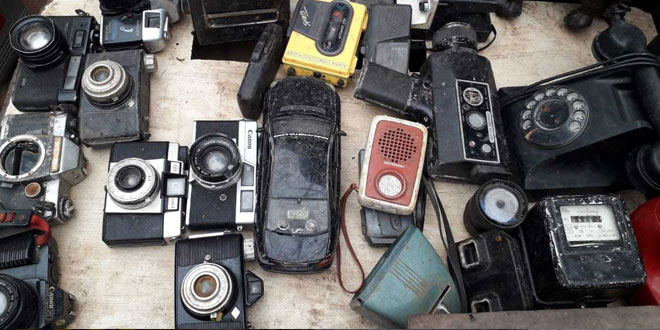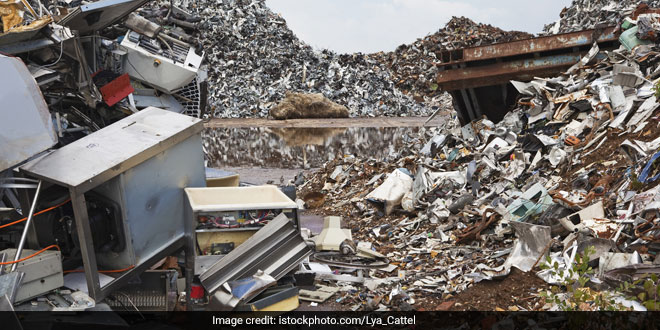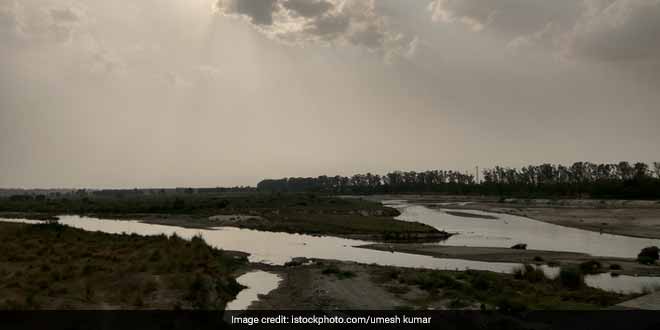

62 million tonnes of e-waste produced in 2022 would fill around 1.55 million 40-tonne trucks, equivalent to encircling the equator with trucks bumper-to-bumper, stated the UN...


The new E-Waste management rules replace Batteries (Management and Handling) Rules, 2001, and apply to all types of batteries except those used in equipment connected with...

India is likely to generate 5.2 million tonnes of e-waste per year by 2020, up from 2 million tonnes in 2016, according to a recent ASSOCHAM-EY...

Haribaabu Naatesan, an artist from Mumbai creates art using the electronic waste like old CDs, mobile phones, laptops and parts of microwave and washing machines which...

Expressing concerns over the harmful effects of a toxic chemical element antimony which is widely used in coating solar panels, the National Green Tribunal has asked...

1,000 kilos of e-waste was collected in one year at the recycling centre at Dhankawadi in Pune, thanks to the efforts of waste pickers

Veena Sahajwalla, a scientist in Sydney, is the inventor of ‘microfactories’ that claims transform e-waste into reusable material to be converted into ceramics and plastic filaments...

According to a joint study by ASSOCHAM-NEC, Maharashtra contributes the most to the 2 million tonnes of e-waste generated in India. The state generates 19.8 per...

According to a recent report by ASSOCHAM-NEC, India generates around 2 million tonnes of e-waste every year. It is time that you contribute less to it...

The Delhi High Court ordered that steps taken should be time bound and directed the ministry to also indicate how e-waste was being managed and disposed...

The Delhi High Court raised concern over rise of e-waste in the city and asked the civic bodies whether there is any plan on its disposal

The analysis report submitted by Uttar Pradesh authorities said that there is a presence of metals like chromium, cadmium, copper, lead, nickel, manganese and zinc in...